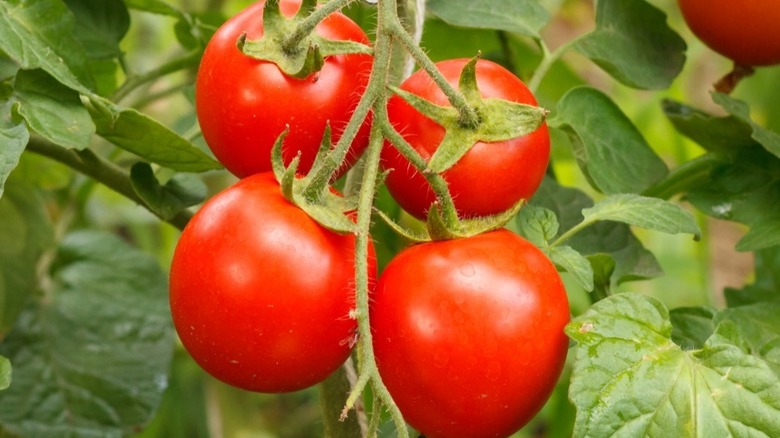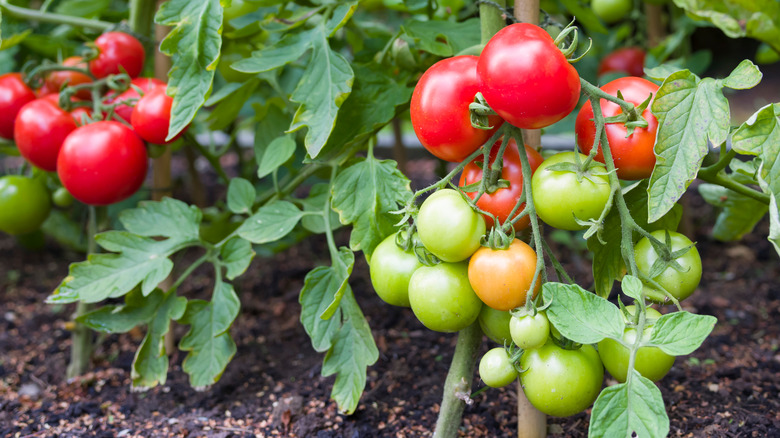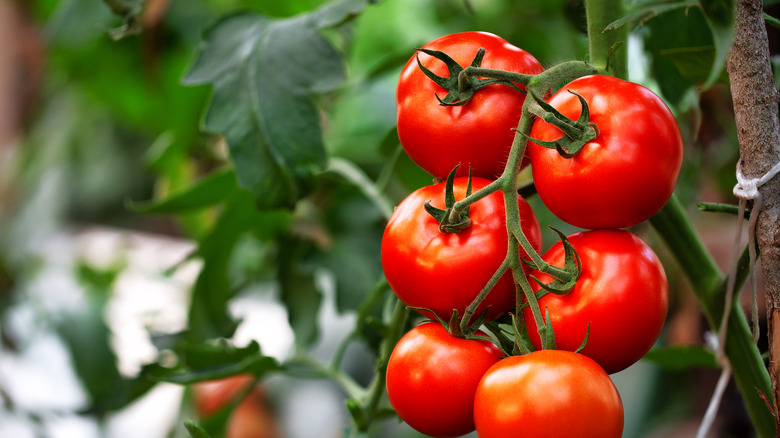Will You Get Sick From Eating Tomato Leaves?
Tomatoes are one of the most common and versatile fruits out there with a million delicious recipes and uses. But one thing generations of cooks have always been cautious of is the leaves of the tomato plant. Caution for eating tomato leaves and even the fruit itself dates back thousands of years to when the Spanish brought the plant over to Europe from Mexico, reports Harold McGee for The New York Times. Tomatoes are among the nightshades, a family of plants that also includes potatoes, eggplant, most peppers, and even tobacco.
Nightshades, despite their popularity in cooking, have long had a reputation of being dangerous or poisonous plants — and perhaps rightly so. All nightshades contain a type of compound called alkaloids, of which there are many types ranging from totally innocuous to potentially harmful, according to Healthline. So, are tomato leaves poisonous? Technically, yes, but there's more to the story.
What in tomato leaves can make you sick?
The key alkaloids in tomato plants are tomatine and solanine. According to ScienceDirect, both are toxic antifungals that the plant produces to protect itself against funguses that may take over or harm the plant. Both are present in tomato leaves, as well as in the stems and flowers. Poisoning from tomatine and solanine can include many grisly symptoms like stomach pain and cramps, vomiting, dizziness, hallucinations, heart arrhythmia, and more.
Thankfully, the amounts of both tomatine and solanine are so low in tomato leaves that even though they are technically toxic, they are actually safe to eat in reasonable quantities. How much would you have to eat in order to get sick? The New York Times reports that you'd actually have to eat at least a pound to begin to feel tomatine and solanine's ill effects. Since it's unlikely that anyone would actually eat such a large amount, you will likely not get sick from eating tomato leaves.
Could tomato leaves actually have health benefits?
In case you're not convinced, The Kitchn points out that tomatine and solanine are present in higher amounts in green tomatoes, but it's still widely accepted to eat green tomatoes despite this. Interestingly, solanine can't be destroyed by boiling, but it can by frying (via ScienceDirect), and frying is one of the most common methods for preparing green tomatoes.
Harold McGee makes the same point for The New York Times but takes it a step further, pointing out a 2000 study by Dr. Mendel Friedman of the federal Department of Agriculture that suggested that the tomatine found in green tomatoes could actually lower bad LDL cholesterol in animals. Dr. Friedman has also published another study in the Journal of Agricultural Food Chemistry positing that tomatine can actually inhibit the growth of certain types of cancer cells. So it's possible that the alkaloids that make tomato leaves harmful in high concentrations could also provide serious health benefits in other contexts.


